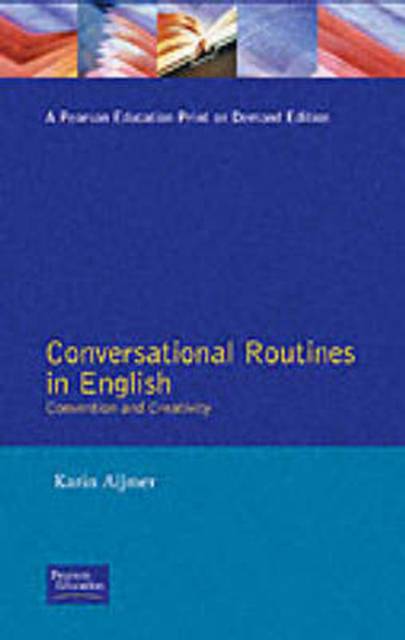
Je cadeautjes zeker op tijd in huis hebben voor de feestdagen? Kom langs in onze winkels en vind het perfecte geschenk!
- Afhalen na 1 uur in een winkel met voorraad
- Gratis thuislevering in België vanaf € 30
- Ruim aanbod met 7 miljoen producten
Je cadeautjes zeker op tijd in huis hebben voor de feestdagen? Kom langs in onze winkels en vind het perfecte geschenk!
- Afhalen na 1 uur in een winkel met voorraad
- Gratis thuislevering in België vanaf € 30
- Ruim aanbod met 7 miljoen producten
Zoeken
Omschrijving
It is surprising how much of everyday conversation consists of repetitive expressions such as 'thank you', 'sorry', would you mind?' and their many variants. However commonplace they may be, they do have important functions in communication. This thorough study draws upon original data from the London-Lund Corpus of Spoken English to provide a discoursal and pragmatic account of the more common expressions found in conversational routines, such as apologising, thanking, requesting and offering. The routines studied in this book range from conventionalized or idiomatized phrases to those which can be generated by grammar. Examples have been taken from face-to-face conversations, radio discussions and telephone conversations, and transcription has been based upon the prosodic system of Crystal (1989). An extensive introduction provides the theory and methodology for the book and discusses the criteria for fixedness, grammatical analysis, and pragmatic functions of conversational routines which are later applied to the phrases. Following chapters deal specifically with phrases for thanking, apologising, indirect requests, and discourse-organising markers for conversational routines, on the basis of empirical investigation of the data from the London-Lund Corpus of Spoken English.
Specificaties
Betrokkenen
- Auteur(s):
- Uitgeverij:
Inhoud
- Aantal bladzijden:
- 268
- Taal:
- Engels
- Reeks:
Eigenschappen
- Productcode (EAN):
- 9780582082113
- Verschijningsdatum:
- 29/10/1996
- Uitvoering:
- Paperback
- Formaat:
- Trade paperback (VS)
- Afmetingen:
- 140 mm x 216 mm
- Gewicht:
- 312 g

Alleen bij Standaard Boekhandel
+ 259 punten op je klantenkaart van Standaard Boekhandel
Beoordelingen
We publiceren alleen reviews die voldoen aan de voorwaarden voor reviews. Bekijk onze voorwaarden voor reviews.









